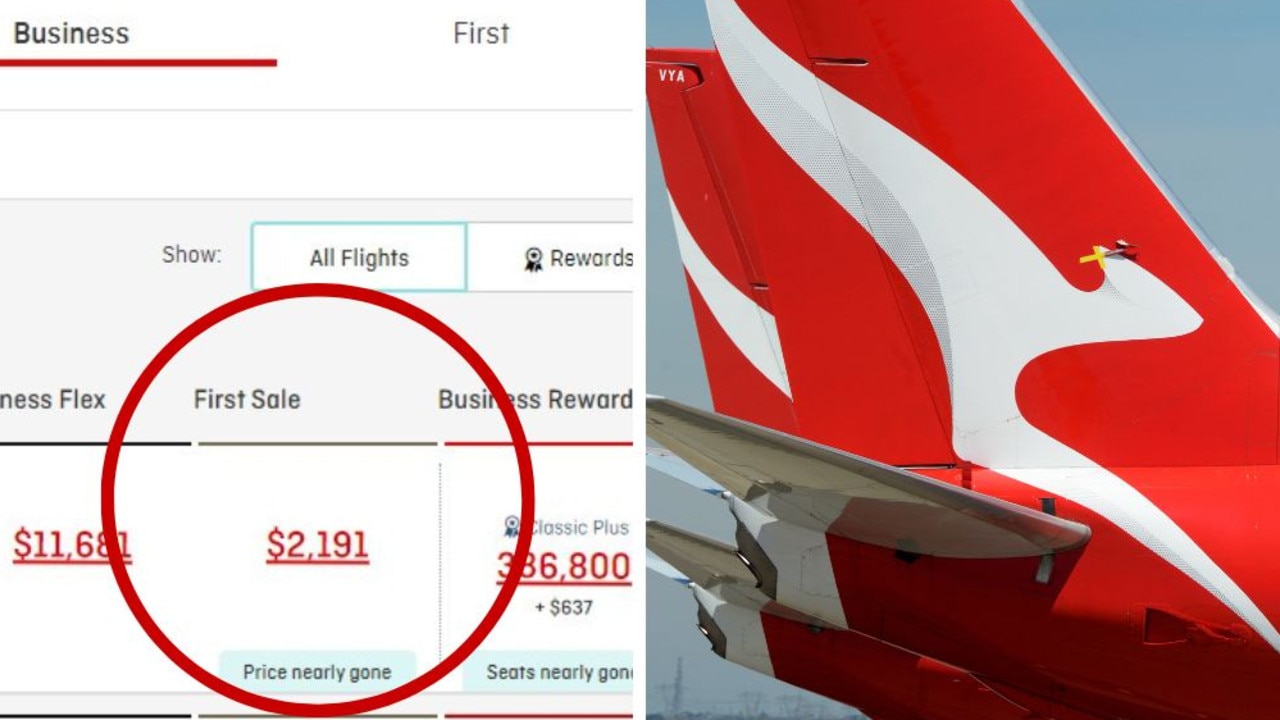How to save fees while overseas
DID your expenses spiral out of control on your last holiday? These are the tips you must know to avoid a budget blowout on your next trip.

DID your expenses spiral out of control on your last holiday, forcing you to eat baked beans on toast for a month to bounce back?
We speak to Jeremy Cabral, publisher of personal finance comparison website CreditCardFinder.com.au, to find out how to avoid a budget blowout.
It should go without saying that overseas trips are expensive, but what must be said is that some of these costs are unnecessary. Mainly the fees and charges that come with accessing your money overseas. Whether it's at the point of sale, the ATM or at the currency exchange office, intelligent travellers can save hundreds, if not thousands on fees and charges when they're abroad. The key is knowing the fees you can avoid and how to minimise the cost of the ones you can't.
Credit cards
Anyone who uses a standard credit card to pay for their day to day expenses while they're abroad is going to get smacked with fees when they use their card to make a purchase or withdraw cash.
The main culprit is the currency conversion fee. This fee goes by a couple of names, foreign currency conversion fee, foreign transaction fee and cross currency conversion fee to name a few, and is charged when a lender converts Australian dollars into a foreign currency so a transaction can take place.
Commonly, a lender will pocket two or three percent of the total value of the transaction for providing the currency exchange service. The easiest way to avoid this charge is to use a card that has no conversion fee. Cards like the GEM 28 Degrees MasterCard, the Bankwest Platinum range of credit cards and the Aussie Platinum Low Rate Card all waive this fee and come with a range of travel friendly features like complimentary international travel insurance, which is another couple of hundred saved - even before you've left the country.
Anatomy of an international cash advance
• Local ATM operator fee: $2
• International ATM fee: $5
• Cash advance fee: 1.50 per cent
• Cross currency conversion fee: 3 per cent
• Interest charges: 20 per cent
Cash advance fees can also be an irksome point for overseas travellers. Each time you use your credit card to withdraw cash from an ATM, there's a host of fees you're likely to incur. There's the cash advance fee, local ATM operator fee, international ATM fee and interest, which is charged from the day you withdraw cash. A good option is to load money onto your credit card so your account is in surplus. This way, you can use your card at an ATM and avoid cash advance interest rates of approximately 20 per cent, but there will still be a cash advance fee and local and international ATM operator fee. Using your credit card is not a smart option for the frugal traveller, but if you must do it, use your own money, not the banks.
Travel money cards
Travel money cards are an interesting way of managing cash while overseas. They are a great option for the security conscious, although the trade-off is that many of the products on the market have more in fees than a stray dog has in fleas. There's the cross currency conversion fee, which ranges from 2 - 5.45 per cent, reload fees of 1 per cent and in some instances, transaction fees for purchases.
Reload fees are unavoidable. The nature of these cards require you to deposit funds in order to use them. Once again, the cross currency conversion fee is the main charge to watch out for. These cards work by allowing people to pre-load "currency buckets" onto the card. For instance, US currency is one bucket and Euros are another.
If you don't have the available funds in one particular currency, the card will automatically convert another bucket into the currency you wish to use, and charge you a cross currency conversion fee in doing so. This fee can be avoided with a little planning. If you know you're going to be in the Euro-Zone, make sure you have Euros on your card. If it means loading more currency onto the card and paying the reload fee, it's still approximately 2 per cent less than what you would have paid had you converted the funds from a different currency bucket.
Transaction accounts
General transaction accounts can be a good way of accessing your money while abroad, but be warned, just like credit cards and travel money cards, transaction accounts can also be an expensive form of holiday finance. There is a cross currency conversion fee and ATM operator fees. The good news is you can avoid some, or all of these fees with a little planning.
Anatomy of an ATM withdrawal
• Foreign ATM fee (charged by Australian institution): Approx. $5.
• Local ATM operator fee: you will be notified at the time of the transaction.
• Cross currency conversion fee: 3 per cent
If you're looking to cut back on local ATM operator fees, use an ATM that is part of your bank's global ATM alliance. Many leading Australian banks have alliances with major overseas retail banks. Westpac, for instance, has an alliance with Deutsche and Barclay's Bank, which provides free ATM services in countries such as the United Kingdom through to Zimbabwe.
Saving $5 on an ATM transaction is not a reason for dramatically altering your travel plans; however, with a little foresight, you can plan your withdrawals at your bank's alliance ATMs and save yourself the sometimes exorbitant cost of accessing your money overseas.
The Citibank Plus Transaction Account makes it easy to access your money overseas. You can save on the cross currency conversion fee, international ATM fee, but local ATM operator fees may still apply if you're using an ATM outside of the Citibank Network.
The easiest tourist trap to avoid starts here at home with your choice of how to get cash and make purchases overseas. Fees that come with standard products start to add up and can whittle away your holiday funds faster than you can down a cocktail. If you want to extend the good times, make your money go further by being smart about how you choose to access your funds when overseas.
Jeremy Cabral is the publisher of personal finance comparison website CreditCardFinder.com.au.



